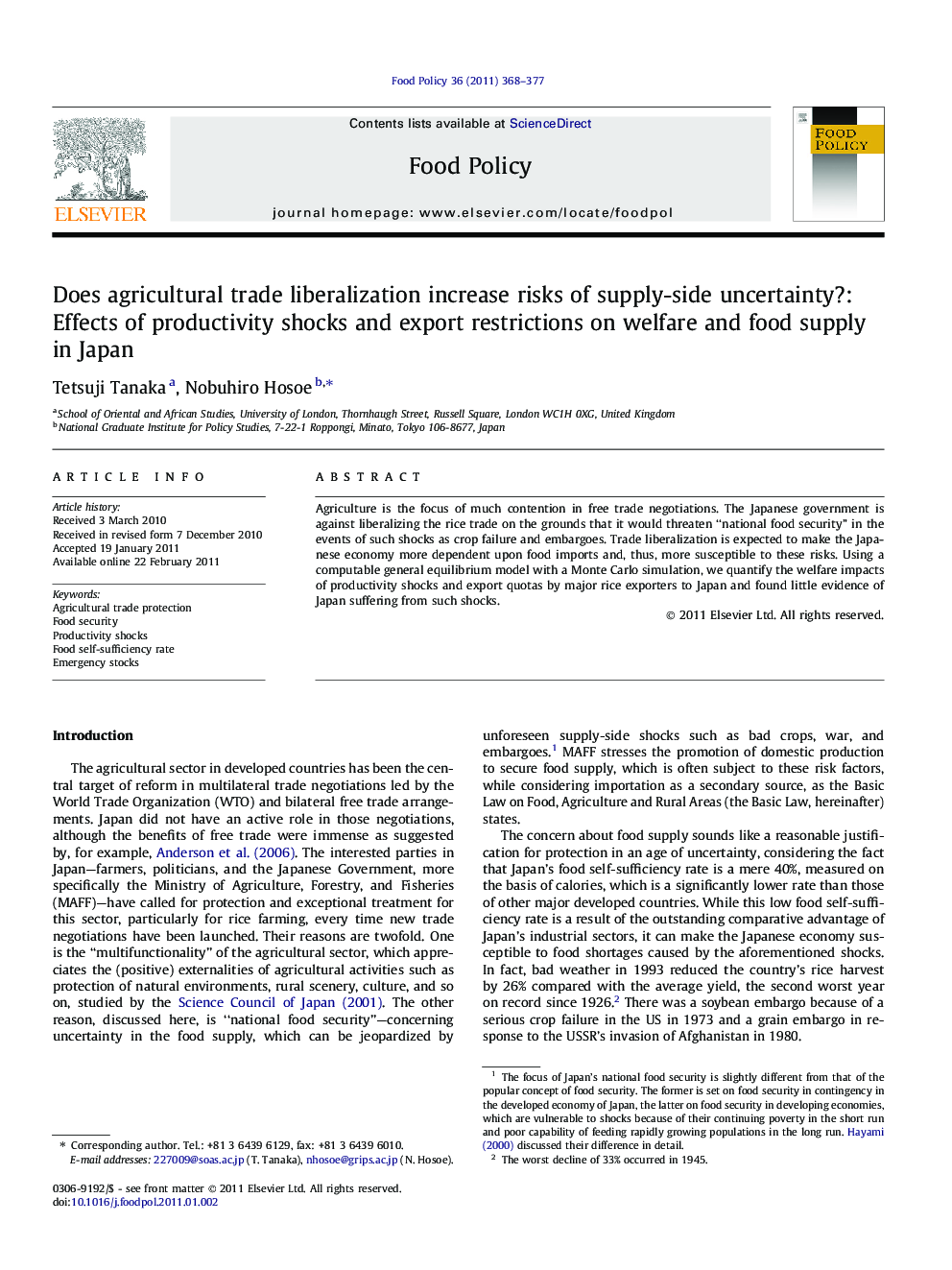| Article ID | Journal | Published Year | Pages | File Type |
|---|---|---|---|---|
| 5070835 | Food Policy | 2011 | 10 Pages |
Agriculture is the focus of much contention in free trade negotiations. The Japanese government is against liberalizing the rice trade on the grounds that it would threaten “national food security” in the events of such shocks as crop failure and embargoes. Trade liberalization is expected to make the Japanese economy more dependent upon food imports and, thus, more susceptible to these risks. Using a computable general equilibrium model with a Monte Carlo simulation, we quantify the welfare impacts of productivity shocks and export quotas by major rice exporters to Japan and found little evidence of Japan suffering from such shocks.
Research highlights⺠A world trade CGE model is used to examine Japan's national food security. ⺠We evaluate the effects of Japan's rice trade liberalization under various shocks. ⺠Rice sector productivity in Japan and abroad is randomized. ⺠Rice export quotas are assumed to be imposed by Japan's major rice trade partners. ⺠Free rice trade ensures Japan's national food security under these shocks.
